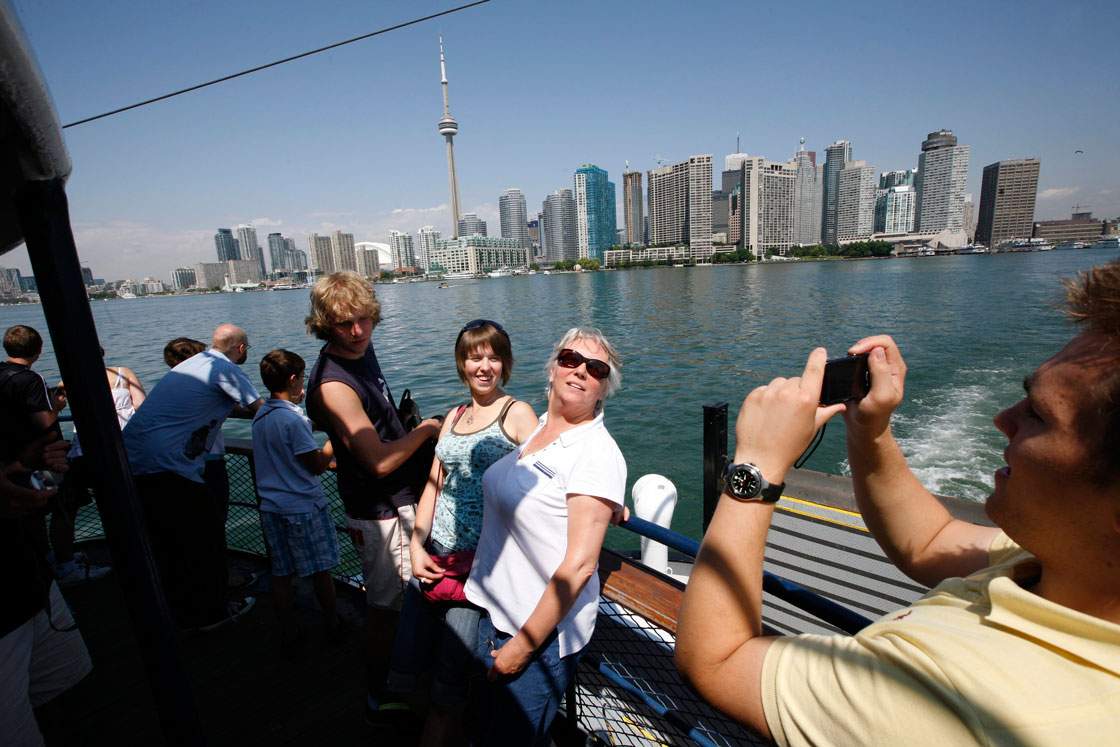Canadians will soon be able to turn even the quirkiest of passions into part-time tourism jobs.

Airbnb Trips, the home-sharing company’s first foray into travel tours and activities, officially launched in Toronto Friday, allowing users from all over the world to book unique experiences in the Toronto area, operated entirely by locals.
Through Trips, Airbnb users can book a range of activities and tours in the city they are visiting, with the added bonus of being introduced to areas and attractions that aren’t on the regular tourist path. Anyone is able to apply to be a Trips host by submitting their idea for a tour to Airbnb; once it’s approved, the host can set their price and start taking reservations.
READ MORE: Will Airbnb’s impact on the short-term rental market be its downfall?
But these “experiences” are anything but your ordinary walking tour.
In Paris, users can chose to participate in a violin-making workshop, take a three-day tour of the city with a focus on women’s history, take a sustainable cooking class and even take a perfume making workshop. Those travelling in Tokyo might want to take a burlesque dance class, indulge in three days of ramen tasting, or spend a couple of days training in the art of sword artistry.
In Los Angeles, a city best known for its celebrity home tours, you can join a “renegade gardener” to learn about the art of growing an urban vegetable garden.
WATCH: The best Airbnb’s in Canada

La Mesa said the idea to expand Airbnb’s offerings beyond home and vacation rentals was born thanks to hosts who went the extra mile, often including similar experiences as part of their guest’s stay – something he experienced himself when travelling in Tokyo.

Get breaking National news
READ MORE: San Francisco woman says her house was trashed by an Airbnb renter filming porn
“I had an interpreter that taught me things about Tokyo that I never would have known,” he said. “I got to see hidden temples that weren’t even on the map, but I also got to spend time with him and his friends, learning about sushi and the sushi culture in Japan.”
The service, launched in November, is already available in 13 cities around the world, including Tokyo, Havana, San Francisco, Miami and Toronto, the first Canadian city to make the list. La Mesa said Airbnb is already eyeing Vancouver as its next Canadian location, in addition to Montreal, but wouldn’t offer an estimate of when the service might launch.
But the Trips feature also provides hosts with an opportunity to share their passion with a wide demographic.
WATCH: Woman listing room on Airbnb says guest ran an ‘adult’ business

“The best hosts are the ones that are truly passionate about something – they do it because they truly want to connect with people and meet new people,” La Mesa said, noting that foodie tours are some of their most popular. Of course, a Greek cuisine themed Danforth Avenue food tour is one of the first Toronto experiences offered through the app.
The new service comes as cities from Vancouver to Amsterdam work to limit short-term rentals, which critics say exacerbate housing shortages and drives out lower-income residents. The same week Trips launched in Toronto, anti-Airbnb coalition “Fairbnb” released a report examining the commercialization of home-sharing in the city. The report found short-term rental activity is distorting the Toronto rental market.
READ MORE: Damages could hit $150,000 in Calgary home trashed by Airbnb renters
New regulations in multiple cities worldwide now threaten to erode Airbnb‘s revenue and its $30 billion valuation, which far exceeds that of any hotel company.
Airbnb has, by its own admission, been slow to address cities’ housing concerns. In October, New York Gov. Andrew Cuomo signed a law that would bar even advertising a rental that violates the existing law, which could help regulators crack down on Airbnb itself in addition to the users of its service.
A month later, San Francisco lawmakers voted to further restrict home renting by approving an ordinance that bars hosts from having paying guests in a room, house or apartment for more than 60 days a year. The ordinance still requires the mayor’s approval.
— With files from The Associated Press






Comments